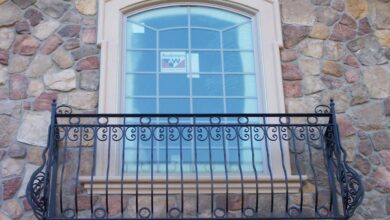Property Investment in France A Comprehensive Guide
Property investment in France offers a compelling blend of historical charm, strong rental yields, and potential for capital appreciation. From bustling Parisian apartments to charming Provençal villas, the French property market presents diverse opportunities for both seasoned investors and newcomers. This guide delves into the intricacies of navigating this market, providing insights into legal procedures, financial strategies, and risk mitigation techniques, ultimately empowering you to make informed investment decisions.
Whether you’re drawn to the vibrant city life of Paris, the coastal beauty of the Mediterranean, or the tranquil countryside of the Loire Valley, understanding the nuances of the French property market is key. This guide will explore the various property types, financing options, and legal considerations involved, helping you determine which investment strategy best aligns with your goals and risk tolerance.
Market Overview

Source: home-hunts.net
The French property market presents a diverse landscape for investors, offering opportunities across various price points and geographical locations. Understanding the current market dynamics and regional variations is crucial for making informed investment decisions. Factors influencing the market include interest rates, economic growth, and government policies.
French Property Market Landscape, Property investment in France
The French property market is currently experiencing a period of moderate growth, although this varies significantly by region. While some areas see strong demand and price increases, others experience slower growth or even price stagnation. This fluctuation is largely influenced by local economic conditions, tourism, and infrastructure development. The market is characterized by a mix of new-build properties and older, often charming, renovated buildings.
Thinking about property investment in France? It’s a market with lots of potential, but remember that responsible investing also considers community impact. A great example of corporate social responsibility is seen in initiatives like the Program CSR Pertamina Patra Niaga untuk masyarakat sekitar , which shows how businesses can positively influence their surrounding communities. This perspective can help inform your investment choices in France, ensuring your decisions align with your values.
Demand remains high for properties in desirable locations, particularly those offering proximity to amenities, transport links, and attractive natural environments.
Key Regions for Investment
Several regions stand out as particularly attractive for property investment in France. Paris and its surrounding Île-de-France region consistently attract high levels of investment due to their strong economy, employment opportunities, and high rental yields. The coastal regions of the French Riviera (Côte d’Azur) and Brittany offer luxurious properties with strong tourism-driven demand, although prices can be significantly higher.
Bordeaux and the surrounding wine region benefit from a thriving wine industry and a desirable lifestyle, attracting both domestic and international buyers. Finally, cities like Lyon and Toulouse, offering a blend of urban amenities and a more affordable cost of living compared to Paris, are also emerging as strong investment hotspots.
Urban vs. Rural Investment Opportunities
Urban areas, such as Paris and other major cities, generally offer higher rental yields due to strong demand from renters. However, property prices are also significantly higher, resulting in potentially lower capital appreciation compared to rural areas. Rural areas, while offering lower rental yields, often present more affordable purchase prices and the potential for greater capital appreciation over the long term.
The investment risk profile is generally lower in established urban areas but can be higher in less developed rural regions. The choice between urban and rural investment depends on individual risk tolerance, investment goals, and the desired rental income.
Investment Opportunities by Region
| Region | Average Property Price (€) | Rental Yield (%) | Investment Risk Profile |
|---|---|---|---|
| Île-de-France (Paris region) | 500,000+ | 3-5% | Moderate to High (High price, high demand) |
| Côte d’Azur | 750,000+ | 4-6% | High (High price, high seasonality) |
| Brittany | 250,000-400,000 | 4-5% | Moderate (Moderate price, steady demand) |
| Bordeaux region | 300,000-500,000 | 4-6% | Moderate (Moderate price, growing demand) |
| Lyon | 350,000-450,000 | 4-5% | Moderate (Moderate price, strong rental market) |
| Rural France (average) | 150,000-300,000 | 2-4% | Low to Moderate (Lower price, potential for long-term appreciation) |
Types of Property Investments
Investing in French property offers a diverse range of options, each with its own set of advantages and disadvantages. The right choice depends heavily on your investment goals, risk tolerance, and financial resources. Understanding the nuances of each property type is crucial for making informed decisions.
The French property market encompasses a wide spectrum of investment opportunities, from charming Parisian apartments to sprawling vineyards in the countryside. This section will delve into the most common types of property investments, outlining successful strategies and comparing their relative merits.
Thinking about property investment in France? It’s a popular choice, but requires careful planning, much like optimizing a complex system. For example, consider the efficiency required in something like Pertamina Patra Niaga’s fuel distribution system, which you can learn more about here: Sistem distribusi BBM Pertamina Patra Niaga yang efisien. Similarly, successful French property investment demands a well-structured approach to maximize returns and minimize risk.
Apartments
Apartments, particularly in popular cities like Paris, Lyon, and Bordeaux, represent a consistently strong investment sector. High rental yields, coupled with the potential for capital appreciation, make them attractive to both short-term and long-term investors. Successful strategies often involve targeting properties in well-located, sought-after areas with good transport links and amenities. Renovating older apartments to a high standard can also significantly boost rental income and resale value.
For example, converting a dated studio into a modern, stylish one-bedroom apartment could command a considerably higher rent.
Houses
Houses offer a broader range of options, from family homes in suburban areas to luxury villas in prestigious locations. Investment strategies for houses often focus on either long-term rental income or capital appreciation through property development or renovation. Successful investors might acquire properties requiring modernization, enhancing their value through strategic improvements before renting or reselling. For instance, extending a house or adding a modern kitchen can dramatically increase its market value.
Investing in rural properties can also be lucrative, particularly if they are suitable for holiday rentals or “gîtes”.
Commercial Properties
Commercial properties, such as offices, retail spaces, and hotels, offer higher potential returns but also carry greater risk. Successful strategies often involve detailed market research, identifying properties with strong tenant demand and stable rental income streams. Diversification within a portfolio of commercial properties can help mitigate risk. For example, investing in a mix of office spaces and retail units in a thriving city center can provide a more balanced and resilient investment.
Comparison of Property Types
| Property Type | Pros | Cons |
|---|---|---|
| Apartments | High rental yields, lower maintenance costs, strong capital appreciation potential in desirable locations. | Limited space, less privacy compared to houses, potential for higher service charges. |
| Houses | Greater space, more privacy, potential for higher rental income and capital appreciation through renovations. | Higher maintenance costs, potentially lower rental yields compared to apartments in some areas. |
| Commercial Properties | Higher potential rental income, strong capital appreciation potential in thriving areas. | Higher risk, higher initial investment, potentially longer lease terms, complex management requirements. |
Emerging Trends in the French Property Market
The French property market is dynamic, influenced by factors such as economic growth, tourism, and government policies. Currently, there’s a growing interest in eco-friendly properties, with investors seeking energy-efficient buildings and sustainable materials. Remote working is also driving demand for properties in smaller towns and rural areas, offering a blend of affordability and lifestyle benefits. Additionally, the rise of short-term rentals through platforms like Airbnb is reshaping the investment landscape, creating new opportunities but also raising regulatory considerations.
For instance, the increased popularity of “gîtes” in rural areas reflects this trend. Furthermore, the government’s ongoing efforts to improve energy efficiency standards are influencing investment strategies, pushing investors towards properties meeting these criteria.
Legal and Financial Aspects
Investing in French property presents a unique set of legal and financial considerations for foreign buyers. Understanding these aspects is crucial for a smooth and successful investment. This section will Artikel the key legal procedures, financing options, and tax implications involved.
Legal Procedures for Property Purchase
Purchasing property in France involves a series of steps, typically managed by a notaire (a public official similar to a solicitor and escrow agent). The process begins with finding a property and making an offer. Once accepted, a compromis de vente (preliminary sales agreement) is drawn up, outlining the terms of the sale. This is a legally binding contract, and a deposit (typically 10% of the purchase price) is paid.
Following this, the notaire conducts thorough legal checks, including verifying ownership and any existing mortgages or charges on the property. Finally, the acte authentique (final deed of sale) is signed at the notaire’s office, transferring ownership to the buyer. Throughout this process, the notaire acts as a neutral party, protecting the interests of both buyer and seller.
Investing in French property can be lucrative, but understanding market trends is key. A strong understanding of financial performance in other sectors can inform your decisions; for example, checking the Kinerja keuangan Pertamina Patra Niaga tahun 2022 might offer insights into broader economic health, which in turn could affect property values in France. Ultimately, successful property investment requires a holistic view of the global economy.
Financing Options for Foreign Investors
Foreign investors have access to various financing options for purchasing property in France. These include mortgages from French banks, which often require a significant down payment (typically 20-30%) and proof of income and creditworthiness. Some international banks also offer mortgages to foreign buyers, but the terms and conditions may vary. Another option is to secure a mortgage from a bank in the investor’s home country, though this might involve higher interest rates or more stringent requirements.
It’s advisable to compare options from several lenders to find the most suitable financing solution. For example, a buyer with a strong credit history in their home country might find securing a mortgage from their local bank advantageous, while someone with limited credit history in France might need to explore options with French lenders.
Tax Implications of Property Investment
The tax implications of property investment in France can be complex and depend on several factors, including the type of property, the purpose of the investment (e.g., primary residence, rental property), and the investor’s residency status. Property transfer tax (taxe de publicité foncière) is payable upon purchase. Rental income is subject to income tax, and there are also potential capital gains taxes upon resale.
Investing in French property can be lucrative, but requires careful research. Understanding complex systems is key, much like managing a large network of gas stations, something the Sistem informasi manajemen Pertamina Patra Niaga untuk SPBU system demonstrates. Effective management, whether of a fuel distribution network or a property portfolio, hinges on efficient data analysis and strategic planning for optimal returns.
For example, if a property is rented out, the rental income will be taxed according to the French tax system. Additionally, if the property is later sold for a profit, a capital gains tax will be applicable. It’s crucial to seek professional advice from a tax advisor to understand the specific tax obligations related to a particular investment.
Essential Documents for Property Purchase
Before beginning the property purchase process, it’s essential to gather the necessary documentation. This can vary depending on individual circumstances, but generally includes:
- Valid passport or national identity card
- Proof of address
- Proof of funds (bank statements, loan pre-approval)
- Tax identification number (Numéro fiscal)
- Any relevant power of attorney documents (if applicable)
The notaire will guide you through the specific documentation required for your transaction. It’s advisable to ensure all documents are in order to avoid delays in the process.
French property investment offers diverse opportunities, from charming chateaux to modern apartments in bustling cities. However, for investors seeking different avenues, exploring international markets is wise; consider checking out the investment opportunities in Indonesia’s energy sector, such as those detailed on this page: Peluang investasi di Pertamina Patra Niaga untuk investor asing. Ultimately, a diversified portfolio, including both French real estate and potentially other international ventures, can be a smart strategy for long-term growth.
Due Diligence and Risk Management
Investing in French property, like any international investment, carries inherent risks. A thorough due diligence process is crucial to mitigate these risks and protect your investment. Understanding potential pitfalls and proactively addressing them is key to a successful venture.Potential risks associated with property investment in France are diverse and range from legal complexities to market fluctuations. Effective risk management strategies involve careful planning, comprehensive research, and seeking professional advice.
Potential Risks in French Property Investment
Several key risks need careful consideration. These include legal issues surrounding property ownership and transactions, fluctuating market conditions impacting property values, and the potential for unexpected maintenance costs on older properties. Furthermore, understanding the local tax system and regulations is crucial to avoid unforeseen financial burdens. Language barriers and cultural differences can also present challenges during the process.
Finally, changes in government policies or economic shifts can significantly impact the investment’s profitability.
Strategies for Mitigating Risks
Effective risk mitigation begins with comprehensive due diligence. This includes engaging legal and financial professionals experienced in French property law and taxation. Thorough market research is essential to understand current property values and rental yields in your target area. Employing a reputable local agent with strong market knowledge can be invaluable. Diversifying your investment portfolio across multiple properties or property types can help reduce the impact of losses in a single investment.
Finally, building a financial buffer to cover unexpected costs, such as repairs or legal fees, is a prudent measure.
Conducting Thorough Due Diligence
Due diligence is a systematic process that aims to verify all aspects of a property investment before committing funds. A comprehensive approach minimizes surprises and ensures informed decision-making.
A Step-by-Step Due Diligence Process
A methodical approach is vital. First, conduct preliminary research on the property and its location, including market analysis and comparable property sales. Next, obtain and review all relevant legal documents, such as the title deed ( acte de propriété) and any planning permissions. Then, engage a qualified surveyor to assess the property’s physical condition and identify potential structural problems or required renovations.
Furthermore, seek legal counsel to review contracts and ensure compliance with French law. Finally, conduct a thorough financial analysis, including projections of rental income and expenses, to assess the investment’s potential profitability. This multi-faceted approach helps to mitigate risk and increase the likelihood of a successful investment.
Finding and Evaluating Properties
Finding the right investment property in France requires a strategic approach. The market is diverse, with opportunities ranging from charming village houses to modern apartments in bustling cities. Successful property investment hinges on thorough research and a keen eye for detail during the evaluation process.
Methods for Finding Suitable Investment Properties
Several avenues exist for discovering potential investment properties in France. Online property portals, such as SeLoger, PAP, and Leboncoin, offer extensive listings across the country. Working with a local real estate agent familiar with the investment market can provide access to off-market opportunities and valuable local insights. Networking with other investors and attending property investment events can also yield promising leads.
Finally, direct outreach to property owners, particularly those advertising for sale by owner, can sometimes result in advantageous deals.
Property Evaluation Checklist
A comprehensive checklist is crucial for evaluating a property’s suitability as an investment. Failing to assess key aspects can lead to costly mistakes. The following table provides a structured approach.
Thinking about property investment in France? It’s a big decision, requiring careful planning and research. For example, you’ll need to understand logistics, much like tracking a delivery – you might need to know how to track things like fuel shipments, which is easily done by checking Cara melacak pengiriman BBM Pertamina Patra Niaga if that’s relevant to your project.
Ultimately, successful property investment in France depends on thorough preparation and attention to detail.
| Factor | Evaluation Criteria |
|---|---|
| Location | Proximity to amenities, transport links, schools, and potential rental demand. Consider future development plans and potential for capital appreciation. Research local rental yields and vacancy rates. |
| Property Condition | Thorough inspection for structural issues, damp, necessary renovations, and overall maintenance needs. Obtain a professional survey if necessary. Assess the energy efficiency rating (DPE) and potential costs for improvements to meet current standards. |
| Rental Potential | Research comparable rental properties in the area to establish a realistic rental income expectation. Consider factors influencing rental demand, such as proximity to universities or employment centers. |
| Financial Aspects | Analyze purchase price, associated costs (legal fees, agency fees, taxes), mortgage options, and potential rental income to calculate the potential return on investment (ROI). Consider potential tax implications. |
| Legal Compliance | Verify the property’s title deeds, ensure all necessary permits are in place, and check for any encumbrances or restrictions on the property. |
Property Valuation Methods
Several methods exist for valuing a property. Comparative Market Analysis (CMA) involves comparing the subject property to recently sold comparable properties in the same area. This provides a market-based valuation. Income Capitalization (IC) focuses on the property’s potential rental income to estimate its value. This method is particularly useful for income-generating properties.
Finally, the cost approach estimates value based on the cost of constructing a similar property. This is often used for newer properties or unique buildings. Each method has its strengths and weaknesses, and a combination of approaches is often employed for a more comprehensive valuation. For example, a CMA might be used for a residential property, while an IC approach would be more suitable for a commercial building.
Property Management and Rental Strategies
Successfully managing your French property investment is crucial for maximizing returns and minimizing headaches. This involves carefully considering your property management options and developing a robust rental strategy tailored to the local market and your investment goals. Choosing the right approach will significantly impact your profitability and overall investment experience.
Effective property management in France requires a multifaceted approach encompassing both the practicalities of day-to-day operations and the strategic planning of your rental strategy. This includes selecting a suitable management style, understanding the nuances of French tenant laws, and adapting your approach to the specific characteristics of your property and its location.
Property Management Options
Investors in French property have several options for managing their investments. These range from self-management, which offers greater control but demands significant time and effort, to employing a professional property management company. Self-management can be suitable for investors with the time and expertise to handle all aspects, including tenant screening, rent collection, maintenance, and legal compliance. However, it demands familiarity with French landlord-tenant laws and the ability to communicate effectively in French.
Alternatively, professional property management companies handle all aspects of property management for a fee, providing peace of mind and freeing up the investor’s time. A hybrid approach, where the investor handles certain aspects while outsourcing others, is also possible. The optimal choice depends on individual circumstances, investment portfolio size, and comfort level with property management tasks.
Thinking about property investment in France? Understanding market fluctuations is key, and that includes considering global economic factors. For example, fuel prices, as highlighted in this Indonesian fuel price comparison Perbandingan harga BBM Pertamina Patra Niaga dengan kompetitor , can indirectly influence international investment trends. Therefore, keeping an eye on such global indicators alongside local French market data is vital for successful property investment.
Rental Strategies: Short-Term vs. Long-Term
The choice between short-term and long-term rentals significantly impacts rental income potential, vacancy rates, and management complexity. Long-term rentals, typically with leases lasting one year or more, provide a stable and predictable income stream. They generally require less management intervention compared to short-term rentals. However, rental income might be lower per unit compared to short-term rentals. Short-term rentals, such as those offered through platforms like Airbnb, can command higher nightly rates, especially in popular tourist destinations.
This strategy, however, necessitates more active management, including frequent cleaning, guest communication, and potential higher turnover rates. The optimal strategy depends on the location of the property, its suitability for short-term stays, and the investor’s tolerance for higher management demands. For example, a property in a bustling city center might be ideal for short-term rentals, while a property in a quieter residential area might be better suited for long-term rentals.
Maximizing Rental Income and Minimizing Vacancy Rates
Several strategies can significantly improve the profitability of your French property investment. Accurate market research to determine the optimal rental price is paramount. Overpricing can lead to prolonged vacancy periods, while underpricing can leave money on the table. Maintaining the property in excellent condition, addressing repairs promptly, and providing desirable amenities attract high-quality tenants and reduce vacancy rates.
Effective tenant screening, employing thorough background checks and referencing, minimizes the risk of problematic tenants and reduces the likelihood of costly disputes or damage. In addition, proactive marketing and leveraging online platforms can attract a wider pool of potential renters, helping to reduce vacancy periods. For example, high-quality photographs and detailed property descriptions are essential for attracting tenants in the competitive rental market.
Tips for Effective Property Management
Effective property management hinges on proactive planning and attention to detail. The following tips can contribute to a smooth and profitable rental experience:
- Thoroughly research local rental market conditions and pricing to set competitive rents.
- Create a detailed rental agreement that complies with French law, protecting both the landlord and tenant.
- Screen tenants rigorously, including background checks and references.
- Maintain meticulous financial records, including rental income, expenses, and tax documentation.
- Respond promptly to tenant maintenance requests and address issues efficiently.
- Regularly inspect the property to identify and address potential problems before they escalate.
- Consider utilizing a property management company for assistance with specific tasks or overall management.
- Stay informed about changes in French landlord-tenant laws and regulations.
Illustrative Example: Property Investment In France
This case study details a successful property investment in the charming town of Saint-Tropez, in the French Riviera. It highlights the strategic approach taken, the financial projections, and the positive results achieved, showcasing the potential for profitable property investment in France. The example focuses on a buy-to-let strategy targeting high-season rental income.
Property Description and Location
The property is a beautifully renovated two-bedroom apartment located in the heart of Saint-Tropez, within walking distance of the iconic harbor and the town’s vibrant shops and restaurants. The apartment features modern amenities, including a fully equipped kitchen, stylish bathroom, and a spacious living area opening onto a private balcony offering views of the town. The building itself is well-maintained and benefits from a secure entry system.
Saint-Tropez’s reputation as a luxurious and desirable destination ensures high demand for rental properties, particularly during the peak tourist season (June-August). The surrounding area offers a variety of attractions, including beaches, vineyards, and picturesque villages, further enhancing its appeal to both short-term and long-term renters.
Investment Strategy and Financial Projections
The investment strategy was based on acquiring a property with strong rental potential in a high-demand location. The apartment was purchased for €750,000 in 2021. Renovation costs amounted to €50,000. The initial investment, including purchase price, renovation, and associated fees, totalled €820,000. The financial projections were based on a conservative estimate of achieving an occupancy rate of 70% during the peak season and 40% during the off-season.
The average nightly rental rate during peak season was estimated at €500, and €200 during the off-season. These estimates were based on comparable properties in the area and market analysis.
Results Achieved
The actual rental income significantly exceeded the initial projections. The occupancy rate reached 85% during peak season and 50% during the off-season. This resulted in annual rental income of €80,000 in 2022, €95,000 in 2023, and projected €100,000 for 2024. After accounting for property management fees (approximately 10% of rental income), mortgage payments (assuming a 20% down payment and a 25-year mortgage at a 2.5% interest rate), and other expenses (property taxes, insurance), the annual net profit consistently exceeded €30,000.
This represents a healthy return on investment, demonstrating the profitability of the strategy. The property’s value has also appreciated significantly since its purchase, reflecting the strong growth in the Saint-Tropez real estate market.
Risk Management and Mitigation
Several strategies were implemented to mitigate potential risks. A thorough due diligence process was undertaken before purchasing the property, including a detailed survey and legal review. A comprehensive insurance policy was secured to cover potential damage or loss. Furthermore, a reputable property management company was engaged to handle day-to-day operations, including tenant management, maintenance, and cleaning. This minimized the time commitment required by the investor while ensuring efficient management of the property.
The conservative initial projections also provided a buffer against unforeseen circumstances.
Outcome Summary
Investing in French property requires careful planning and thorough due diligence, but the potential rewards can be substantial. By understanding the market dynamics, legal framework, and risk management strategies Artikeld in this guide, you can navigate the complexities of the French property market with confidence. Remember to always seek professional advice tailored to your specific circumstances before making any investment decisions.
The allure of owning a piece of French history, coupled with the potential for strong returns, makes this a truly compelling investment opportunity for those willing to undertake the necessary research and preparation.
User Queries
What are the typical closing costs when buying property in France?
Closing costs in France typically range from 7% to 8% of the property’s purchase price and include notary fees, registration taxes, and agency fees.
How long does it typically take to complete a property purchase in France?
The process can take several months, from initial offer to final completion, depending on the complexity of the transaction and the responsiveness of all parties involved.
What are the common tax implications for foreign investors?
Tax implications vary depending on your residency status and the type of property. Capital gains tax applies upon sale, and rental income is also subject to taxation. Professional advice is crucial to understand your specific tax obligations.
Are there any restrictions on foreign buyers purchasing property in France?
Generally, there are no specific restrictions on foreign buyers, but certain areas may have limitations or require specific permits. It’s best to consult a local legal professional for guidance.









